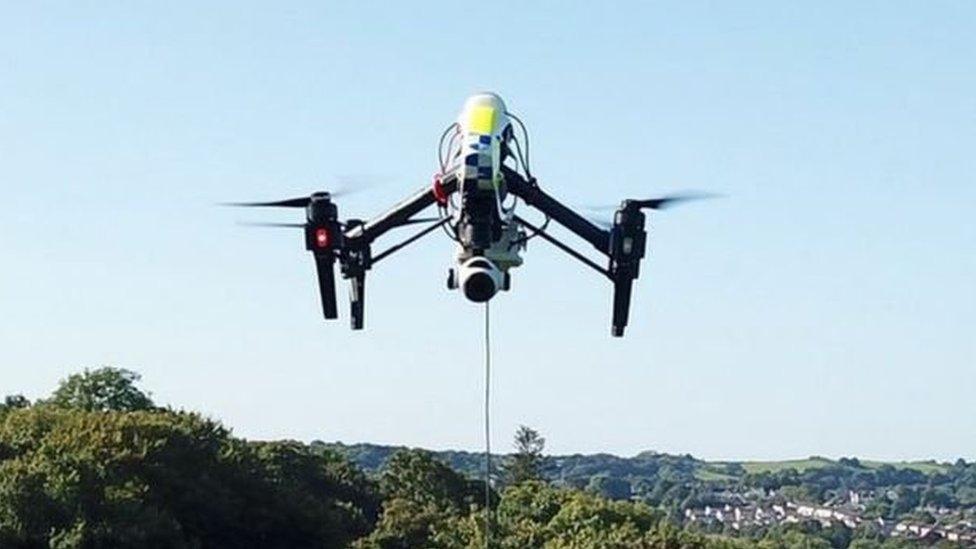Parachutists and RAF Lakenheath fighter jets in near miss
- Published
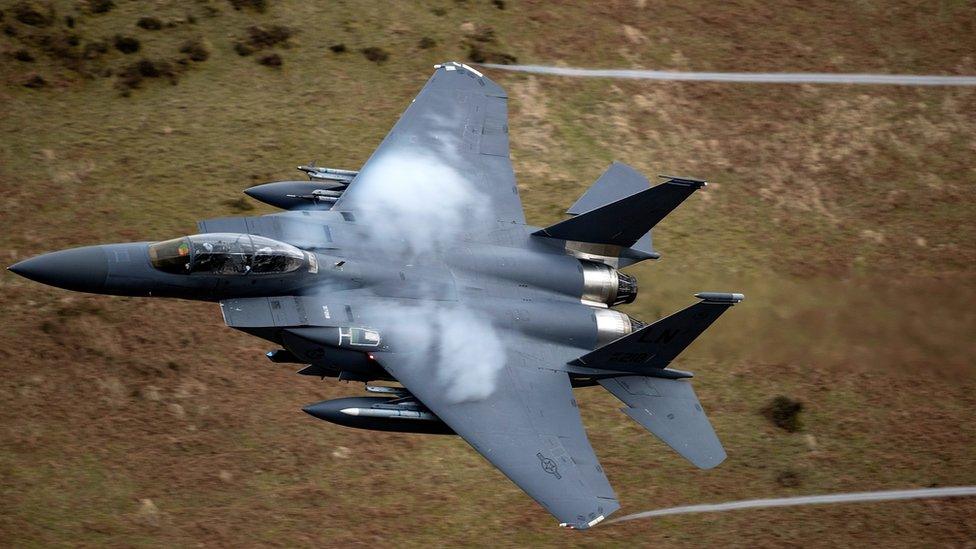
Two F15 fighter planes from RAF Lakenheath, like this one, were travelling at 300 knots (345mph)
Two freefalling parachutists nearly collided in mid-air with two US fighter planes travelling at almost 350mph (560km/h), a report has revealed.
The skydivers recorded the aircraft pass under them on a helmet camera as they fell at 120mph (190km/h).
The pilots from RAF Lakenheath should have been told by air traffic control the Cambridgeshire parachute site was active, said the UK Airprox Board, external.
The US Air Force base was re-briefing crews to make them aware, it added.
The board was unable to establish how close the two pairs came to colliding during the incident over Chatteris airfield on 17 April, and classified it in the second-highest danger category.
"The board was shown Go-Pro footage filmed from the helmet of one of the parachutists and could clearly see the F15s passing beneath," said the report.
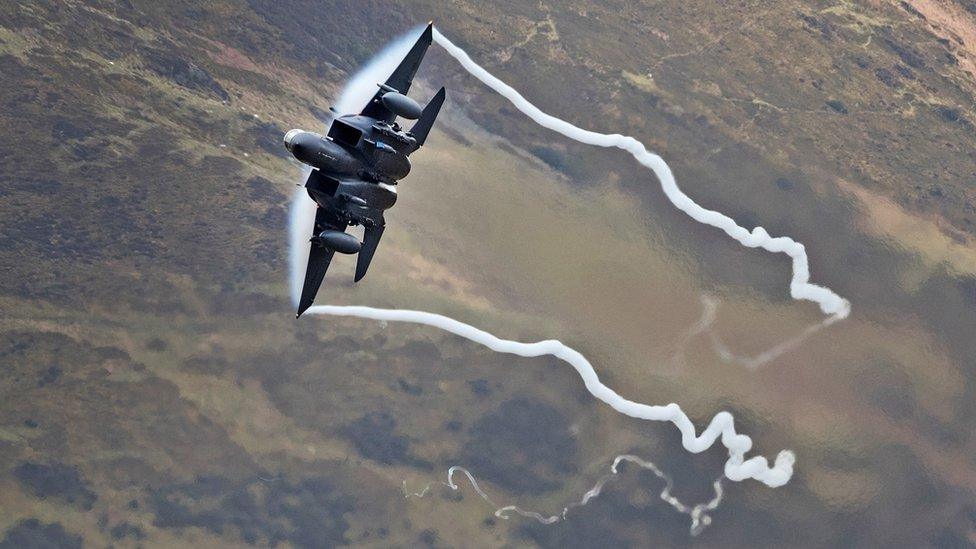
The F15s belonging to the US Air Force in Europe are based at RAF Lakenheath in Suffolk
The jets had made a turn shortly before to avoid a refuelling tanker and were then handed over from air traffic controllers at RAF Coningsby in Lincolnshire to those at Lakenheath in Suffolk, home of the US Air Force's 48th Fighter Wing, external.
"However, the frequency became busy just as they transferred and so, by the time the F15 pilots checked in with the controller, they were already about to fly over Chatteris," said the report.
The pilots "should have known about its position and activities as part of their normal briefing routine", and either questioned air traffic control or avoided it, it added.
Operators from Chatteris airfield, where several parachute clubs are based, call nearby air traffic controllers each morning to tell them if they are active, and the dropping aircraft also alerts them.
The Airprox board said there was "very little more that Chatteris could have done".
The parachutists had "no control over their speed or direction while in freefall", but could have opened their parachutes to slow their descent, the report added.
You may also be interested in:
Col Will Marshall, 48th Fighter Wing commander, said UK airspace was "incredibly complex and often congested".
"The safety of our aircrew as well as those we share the skies with is our number one priority," he said.
"We are using this incident to reinforce the vital importance of situational awareness and attention to detail for our all of our air traffic controllers and aircrew."
- Published28 August 2019
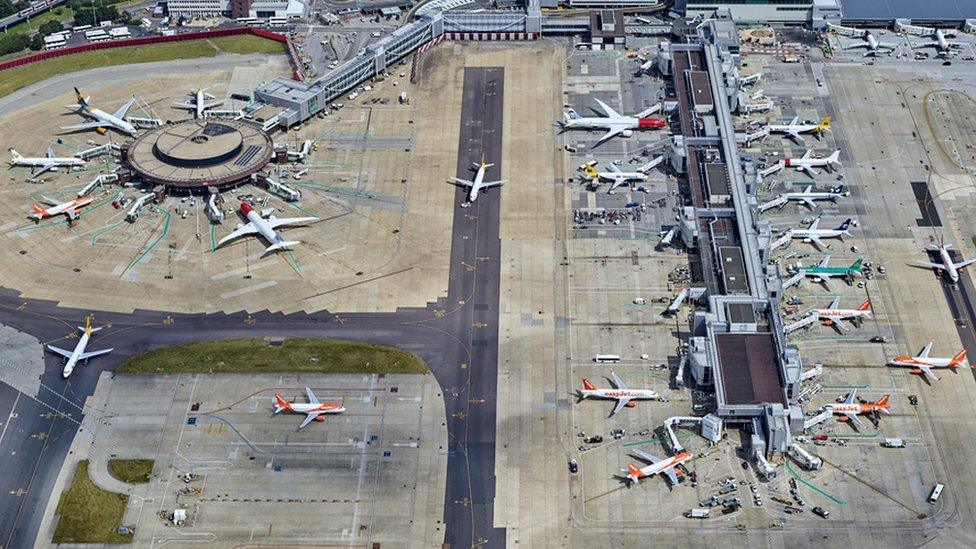
- Published16 June 2019
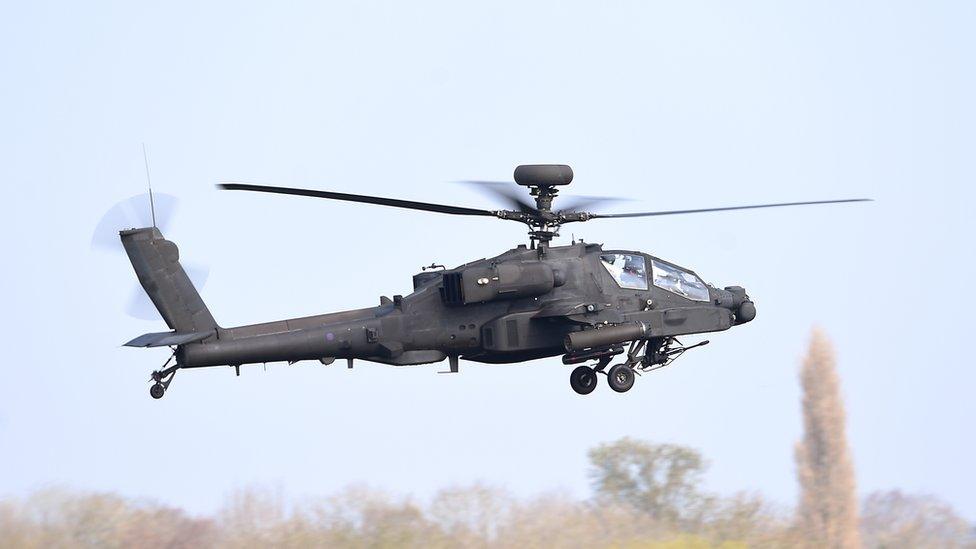
- Published29 May 2018
